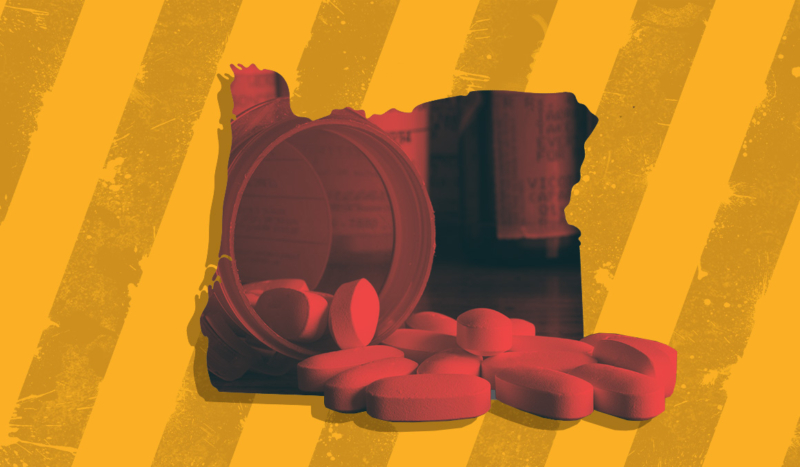
CV NEWS FEED // Both houses of the Democratic-controlled Oregon legislature overwhelmingly passed legislation that would loosen parts of the widely panned 2020 Oregon Ballot Measure 110, which decriminalized hard drugs.
The Associated Press (AP) on Saturday pointed out that the Oregon state Senate “approved House Bill 4002 in a 21-8 vote after the House passed it 51-7 on Thursday.”
“The bill now heads to the desk of [Democratic] Gov. Tina Kotek, who said in January that she is open to signing a bill that would roll back decriminalization,” the AP added.
Per the AP, HB 4002 “makes the possession of small amounts of drugs such as heroin or methamphetamine a misdemeanor” in the state, “punishable by up to six months in jail.”
The bill also “enables police to confiscate the drugs and crack down on their use on sidewalks and in parks,” the AP went on. “Drug treatment is to be offered as an alternative to criminal penalties.”
In 2020, Oregon voters passed Measure 110 by a nearly 17-point margin, making the state the first in the country where police were not allowed to arrest people for possessing small amounts of hard drugs.
An AP report from February 2021 stated that instead of jail time, people found by Oregon police to possess such drugs “would face a $100 fine or a health assessment that could lead to addiction counseling.”
The report specified that the measure applied to “heroin, methamphetamine, LSD, oxycodone and other drugs.”
At the time, supporters of Measure 110 “hailed it as a revolutionary move for the United States,” the AP then noted.
However, the AP indicated on Saturday that Oregon is now “experiencing one of the nation’s largest spikes in overdose deaths.”
>> DENVER ARCHBISHOP: MARIJUANA DESTROYS SOULS <<
The Hill highlighted that according to an audit report from last year, Oregon “has the second-highest rate of substance use disorder in the nation while also ranking 50th for treatment access.”
Some supporters of Measure 110 had claimed that decriminalizing drugs would result in increased access to drug treatment.
Northwest Catholic reported last month: “[T]hree years after the law took effect in February 2021, a nationwide surge in fentanyl use has collided with Measure 110’s legalized tolerance, creating a perfect storm of overburdened social services, policing and community dynamics.”
“The situation has become so extreme that [Twitter] on Jan. 30 joined Multnomah County and Portland city leaders to declare a 90-day tri-government state of emergency,” continued Northwest Catholic, the Archdiocese of Seattle’s official magazine.
Ed Langlois, who is the communications director for the Portland-based Catholic Charities of Oregon, called his state’s situation “a crisis of abuse.”
Langlois told OSV News:
My wife and I went to dinner in downtown Portland recently and saw a man outside the restaurant window smoking a substance he was heating up on foil. He stood there and smoked for about 10 minutes.
All we could do was try to enjoy our pasta. But watching that man poison himself really gave us pause.
Journalist Andy Ngo recounted that while Oregon embarked on its experiment of decriminalizing hard drugs, “fentanyl continued to pour into the U.S. through the porous southern border.”
“Multnomah County, where Portland is, had more deaths from overdosing than Covid-19,” Ngo, a former Portland resident, continued:
Downtown remains a shell of itself years after the pandemic peak and nightly Antifa riots that shuttered businesses. Streets are usually littered with hypodermic needles and feces.
Leftists and Democrats who support decriminalization blame other factors for their decriminalization law not being effective.
Technology businessman David Sacks commented on possible implications Oregon’s “re-criminalization” law might have on a neighboring state.
“Get ready for a big influx of drug addicts to California where they can use and live on the streets without fear of prosecution,” Sacks wrote on X.

